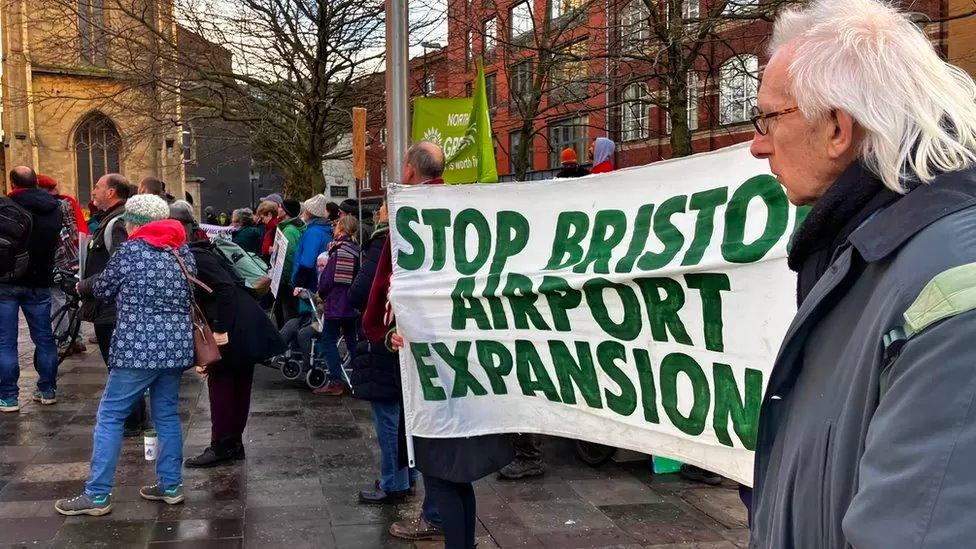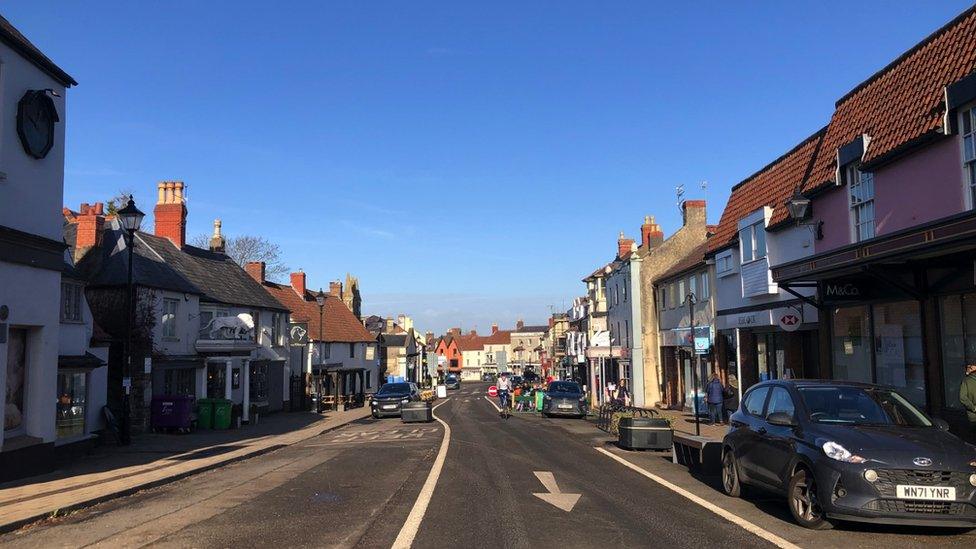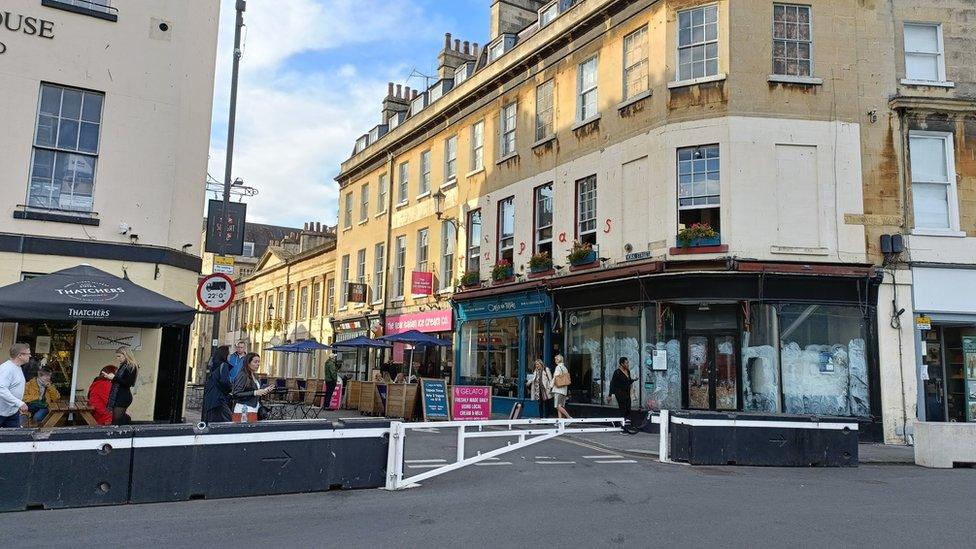Local elections 2023: Traffic and high streets among issues for voters
- Published

Some councillors had opposed the Bristol Airport expansion, which will now happen
Residents in South Gloucestershire, North Somerset, and Bath and North East Somerset will head to the polls on May 4 to elect their local councillor.
While the three areas have their unique political distinctions, whoever wins will face similar challenges.
What are the issues in each area?
The political make-up of South Gloucestershire Council has barely changed over the course of the past decade, with the Conservatives enjoying an outright majority since 2015.
The group defied the party's national showing in 2019 by retaining overall control. A similar result would represent an outstanding achievement for the Tories, who know there are areas of the patch that have previously been very supportive of both Labour and the Liberal Democrats.
This is an authority that has a reputation for being well managed, despite the occasional controversy in places such as Thornbury over changes to the high street.
In North Somerset, voters ended over a decade of Tory rule in 2019, ushering in a cross-party ruling administration made up of Independents, Lib Dems, Labour and Greens.
Many were elected on a promise to oppose the expansion of Bristol Airport, an ultimately futile stance that brutally exposed the limitations of local government when the council's decision to refuse planning was overturned by the Planning Inspectorate.

Thornbury High Street has become a big issue for residents
Dozens of Independents are standing again, while the Conservatives will want to claw back their losses, hoping to capitalise on unhappiness in places such as Clevedon over what has become possibly the most notorious cycle lane in the country.
Finally to Bath and North East Somerset, where the Liberal Democrats are looking for a historic second term after winning almost two thirds of all seats on the council in 2019.
There's no doubt the party has made its mark since then, introducing a Clean Air Zone, as well as a so-called "ring of steel" in Bath city centre.
Meanwhile, the start of a series of Low Traffic Neighbourhoods have begun to be rolled out, with the Lib Dems promising more. In contrast, the Conservatives say they'll scrap many of these policies if elected. However, after such a crushing defeat last time round, they have an awful lot of rebuilding to do.

Work to replace the temporary gates on York Street in Bath with permanent installations will begin in January
Meanwhile, the Green Party is standing a full slate of candidates for the first time, hoping to break out beyond its Bristol stronghold.
But after the votes are counted, the problems facing local government will continue.
You won't read it on any election leaflet, but councils spend the majority of their everyday budgets on social care - looking after vulnerable children and the elderly. With more people needing this support, it's becoming harder to properly fund.
Councils rely heavily on pots from money from the government that have dwindled this past decade, and in their efforts to balance the books they've made cuts to other services such as local bus routes, libraries, or waste collections.
This fundamental issue won't change, even if the political map does.

Follow BBC West on Facebook, external, Twitter, external and Instagram, external. Send your story ideas to: bristol@bbc.co.uk , external
- Published3 May 2023
